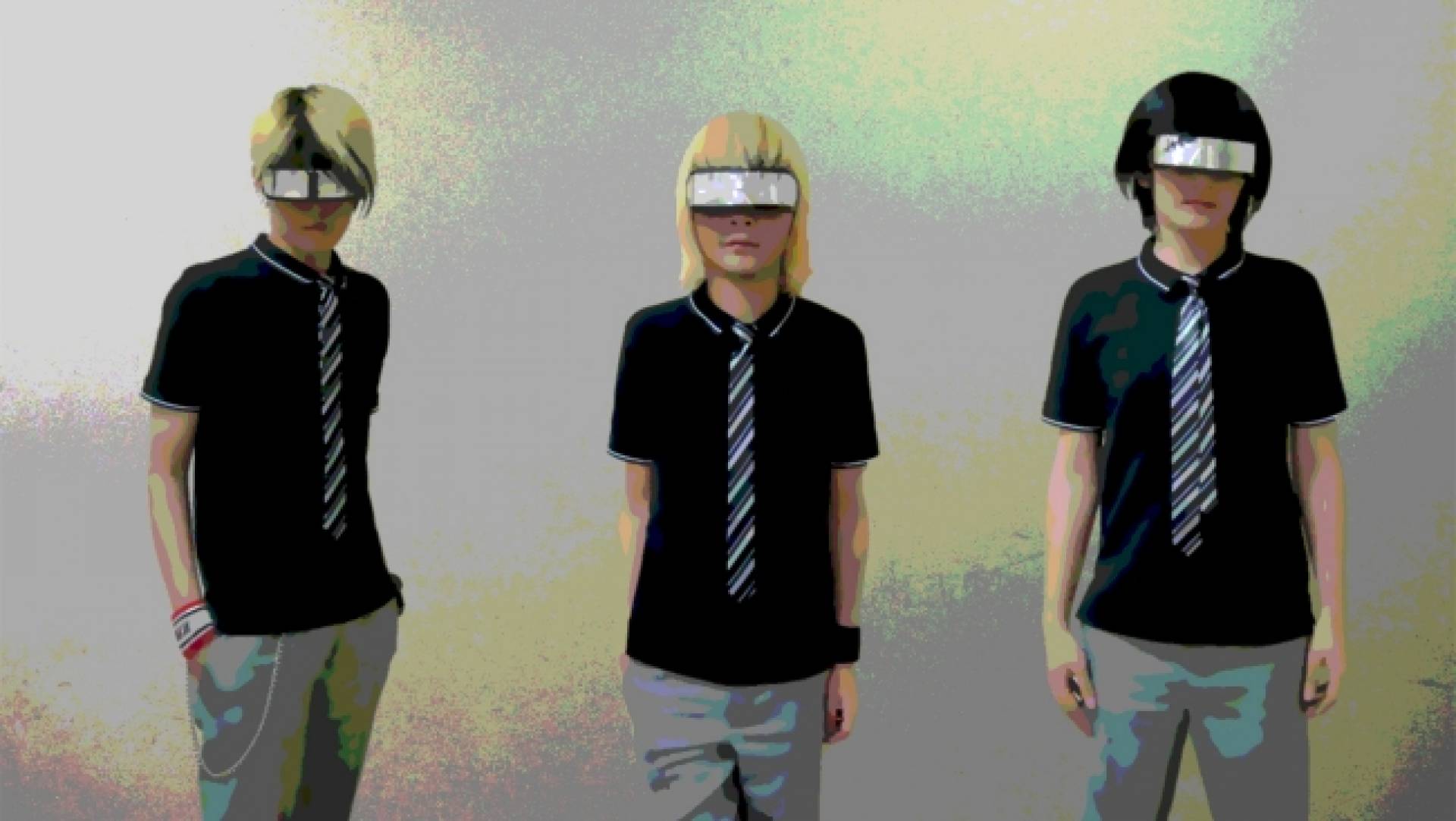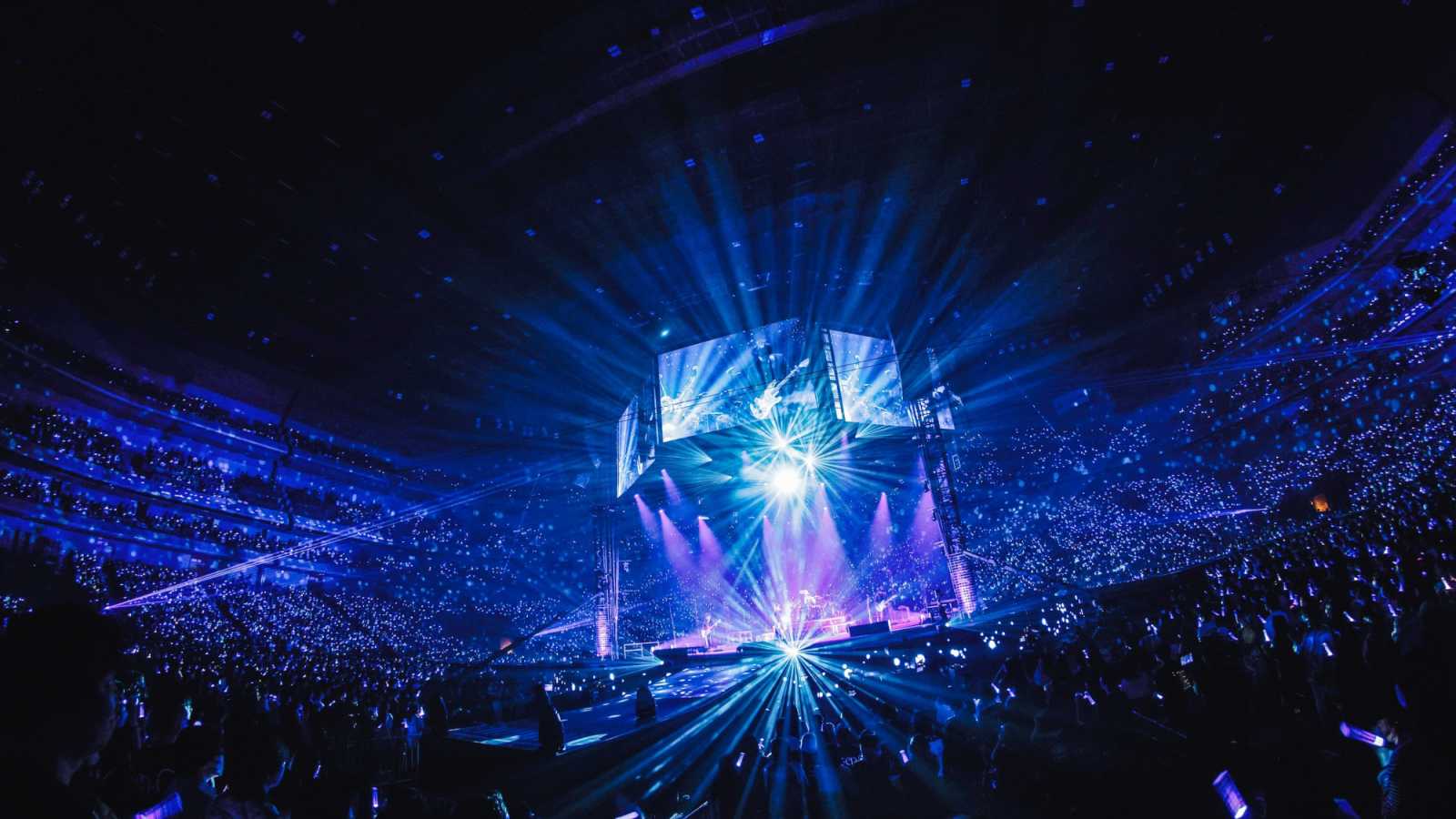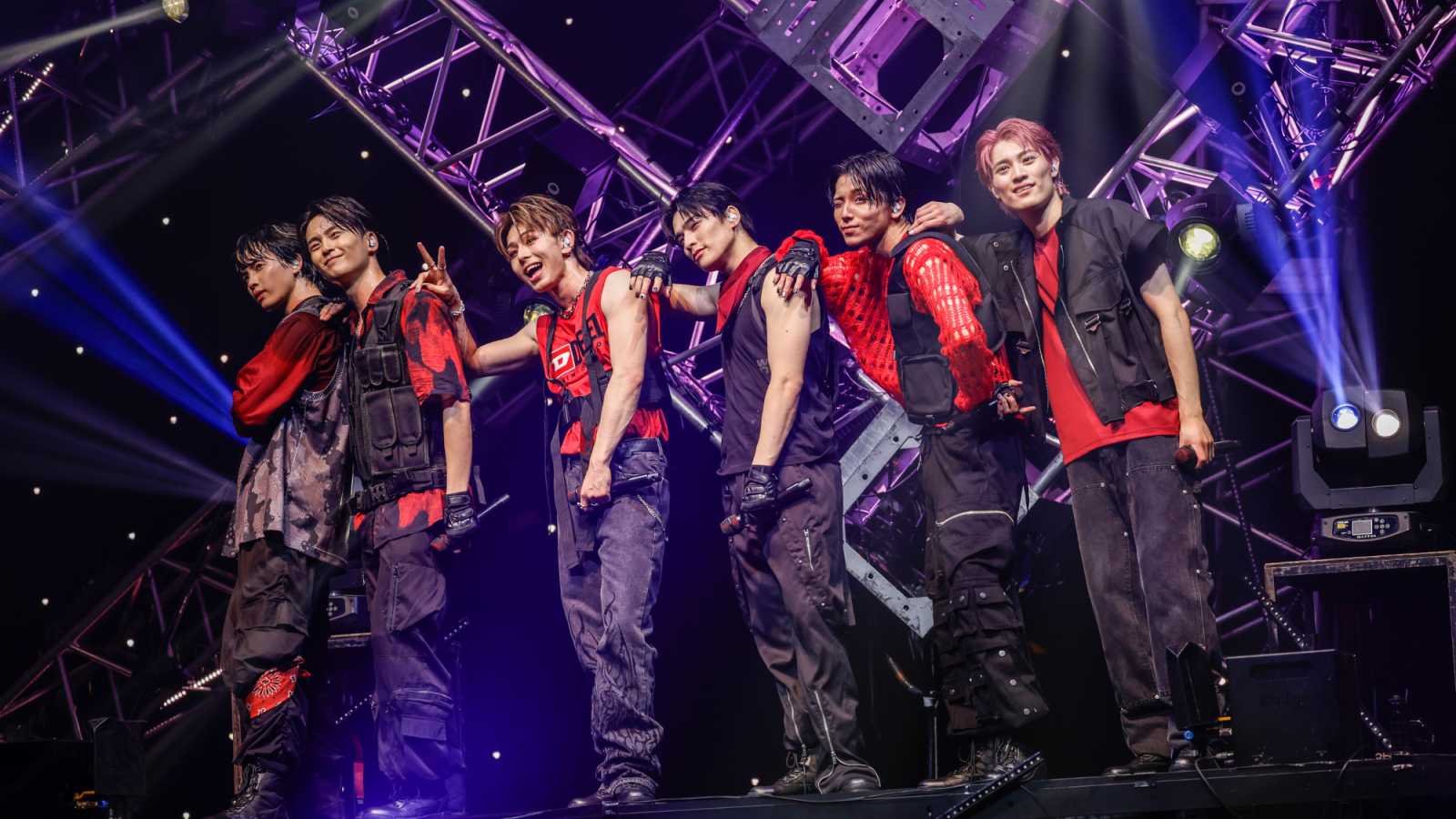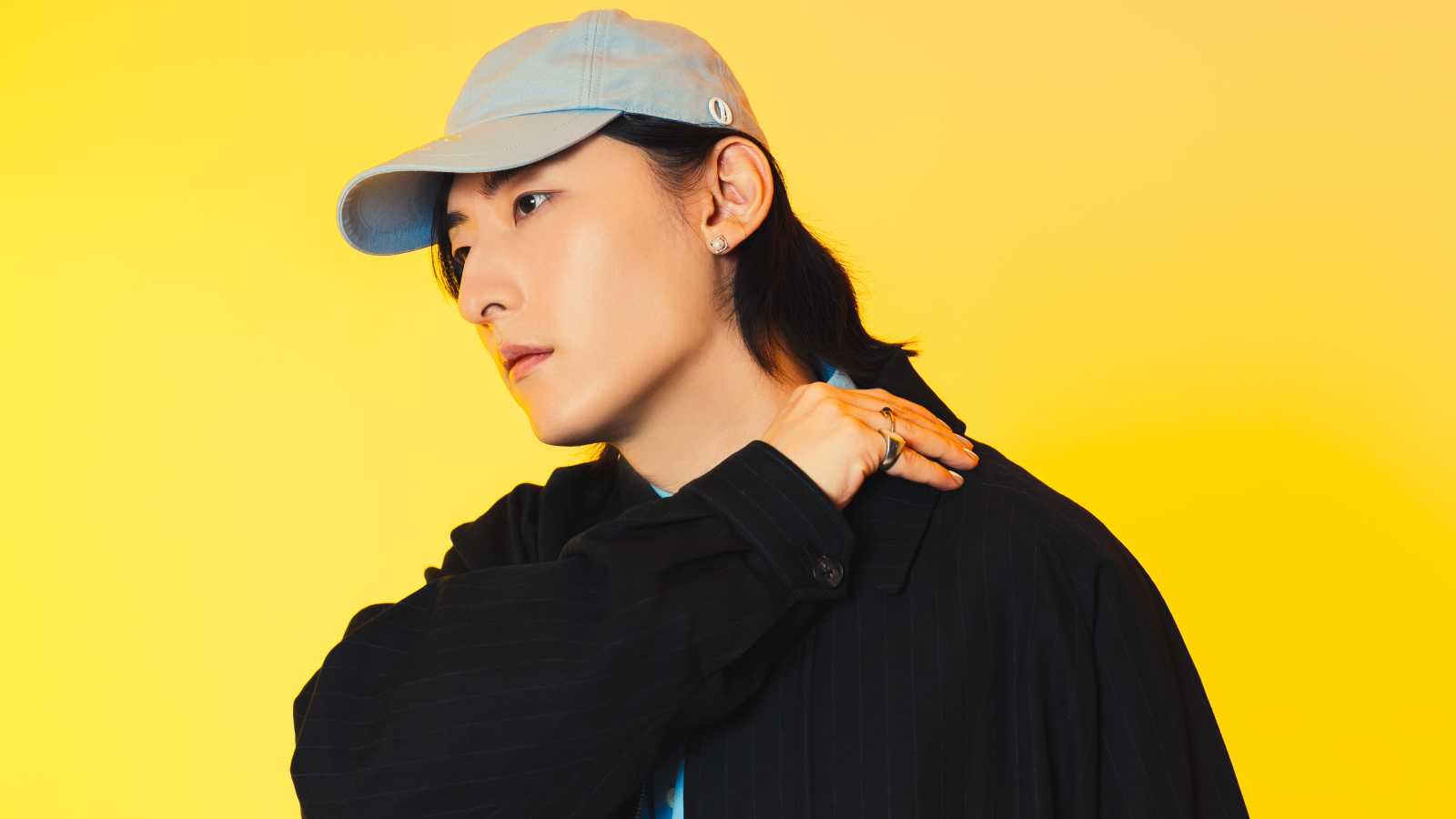Before their performances in the United Kingdom and France, JaME spoke to GalapagosS about their music, inspiration and expectations of the tour.
Fronted by former metronome and FLOPPY vocalist Sharaku, GalapagosS is a new band that mixes a "cheap game sound" with hard rock. JaME had a chance to probe this new three-man band prior to their first European tour about themselves and their upcoming gigs.
GalapagosS will start their tour on October 15th at Japan Underground in London. They will then perform two shows in France before returning to the UK again for a show in Brighton.
For those who may be unfamiliar with your music, can you give us an overview about your style and concept?
Sharaku: GalapagosS is a band with lyrics and melancholic melodies like Japanese Kayokyoku ("Japanese Kayokyoku" is Japanese traditional popular music), with human dynamism and a cool synthesizer sound.
Gokimi.: The members of GalapagosS purely enjoy rocking out. We want the audience to forget about bad things and have fun.
Shintaro: By doing what we want to do without limiting ourselves, especially sound-wise, we want our own style to progress — like what our band name symbolizes.
On your webpage it says that you mix a “cheap game sound” with hard rock. What is the appeal of vintage game music to you?
Gokimi.: It's because we are the Family Computer or Nintendo Entertainment System generation. Of course vintage game music sounds wild compared to recent game music, but I like the humanity in it. It has an appeal like "humans worked hard to make this sound!"
Sharaku: The sound chip used in vintage game music is very wild and I find it a very attractive sound.
Shintaro: For me, vintage game music definitely means Family Computer, and because the Famicom had a limit of just four sounds for both music and sound effects, there were many good songs which are simple and very pop.
Sharaku and Shintaro have both been in Metronome and FLOPPY together before GalapagosS. How has this previous experience affected how you work together now?
Sharaku: As we have been working together for a long time, we can understand each other with few words.
Shintaro: We each know the other's good sides very well, which generates a synergistic effect.
How did Gokimi. become part of GalapagosS?
Sharaku: Shintaro was friends with Gokimi. originally, and introduced him to me.
Gokimi.: I got to know Shintaro through the band TOKYO HEROES. Because we live close to each other, we always drink together.
Shintaro: I knew that Gokimi. has a very flexible style in music, so I thought he would fit in with our flexible band style. And it turns out I was right.
The band was named after the Galapagos syndrome, which is a phenomenon in which a product or society evolves without any influences from globalization. Why did you choose this name, and how does it relate to the band?
Sharaku: The sound and performances of Japanese rock bands contain influences from other countries, but the structure of the lyrical melodies is original to Japan. We named ourselves GalapagosS to cherish this Japanese originality.
Shintaro: GalapagosS' melody is very Japanese. As we make our sound together with the melody, I hope the listeners can feel the Japanese-ness.
Gokimi.: As we are conscious about making something uniquely Japanese, maybe we can make an impact internationally. We want to distribute our style of Japanese melody overseas.
The Galapagos syndrome is occasionally mentioned in relation to Japan, as it seems that many Japanese people seem to be turning more inward instead of becoming more globalised. Do you think Japan suffers from this?
Gokimi.: Yes, that's our culture. Ukiyoe ("ukiyoe" are Japanese woodblock prints), developed originally in Japan, is also very distinctive. By the way, the CD cover of our first mini-album Soy sauce impulse is ukiyoe.
Shintaro: I think the demand in Japan and demand overseas will always be different, because of the environment and population. For example, different genres of video games are popular in Japan than overseas. But that's just the difference in our culture and it's not anything negative. I want to be proud to create Japan-originated music.
Sharaku: Maybe international companies or IT equipment might suffer from the syndrome. But when it comes to art, we believe it can lend character or originality.
This month, you will perform in England. How do you feel about the upcoming concerts?
Sharaku: We will join this UK tour of our label KIMONO, together with other senpai ("senpai" means "senior" in Japanese) bands.
Gokimi.: We have shows together with tokyo pinsalocks and HONDALADY in Japan too, so I'm excited we can tour together!
Shintaro: This will be our first overseas tour, so I feel both expectant and worried, but I hope this tour will benefit our future activities.
Other than the concerts, is there anything else you would like to see in England? Have you ever been there before?
Sharaku: I definitely want to go to Abbey Road and Baker Street! It's my first time flying abroad, so I hope to enjoy it.
Gokimi.: It's my first time to visit England, so there are so many things I want to see! Like Buckingham Palace and the British Museum.
Shintaro: It's my first time visiting England too, so I wish to see as many things as possible. If possible, I want to check out a rehearsal studio.
Are you going to perform elsewhere in Europe? If not, is there anywhere you’d like to play?
Gokimi.: In the UK we have shows in London and Brighton. In France we have shows in Paris and Le Havre. Other places we would like to go in Europe are Scotland, Germany, Sweden, Spain and Italy. We are waiting for offers!!!
Shintaro: Wherever we go it will be the first time, so I want to go everywhere.
Sharaku: I'd like to tour the US and Taiwan in future.
In April you released your first CD Soy sauce impulse. Can you tell us what the concept of this release is and why you chose this interesting title?
Shintaro: We always planned that this band would tour overseas, so that was in our mind when we chose this title.
Gokimi.: It was our first impulse as GalapagosS after each of us experienced playing in many bands.
Sharaku: It expressed everyone's thoughts into our sound.
The cover of Soy sauce impulse features artwork in a traditional Japanese style. How does this art style relate to the single?
Shintaro: Ukiyoe is a culture which developed in Japan only, and that is very GalapagosS.
Sharaku: It's a symbol, like "This is Japanese pop."
Gokimi.: It was Sharaku's idea — don't you think it's stimulating?
In October, you will release the album Black including all. Can you tell us what we can expect from this release and what inspired you for this album?
Sharaku: We managed to bring together many kinds of sounds and approaches into one band as GalapagosS, which could have been diffusive on this album.
Shintaro: We have a wider range compared to the first album, and you'll be able to understand GalapagosS better.
Gokimi.: The colour black is not there from the beginning; you have to make it by mixing many things together. Our music was made beautifully black by mixing up the power we each have.
GalapagosS is quite a new band and in the first year of your career you are already releasing a full album. Can you tell us how you managed to create such a great number of songs so fast?
Gokimi.: That's true. But I think it was quite hard work this time. I made one song too.
Shintaro: We had a lot to think about arrangements, but I think the speed with which we create music is connected to our band's flexibility.
Sharaku: Maybe I am a fast music writer.
The band’s logo is quite interesting (It’s a Galapagos iguana wearing funky goggles which the band members wear). Who came up with the idea? Did the band’s image come first or the logo?
Sharaku: It was my idea. The band name came first, and then the logo design.
Shintaro: I thought it was a great idea when Sharaku told us.
Gokimi.: The design became wild. It was sensational to me that an iguana wears goggles!
Have any of you been to the Galapagos Islands? Would you like to do so?
Sharaku: I would like to go there because I'm interested in world heritage and monuments.
Shintaro: I have never been there, so I want to have a show in GalapagosS.
Gokimi.: I want go. For people in the Galapagos Islands, we are waiting for show offers!
Lastly, please give a message to our overseas readers.
Shintaro: I want everyone to come to our show and enjoy GalapagosS. I will do my best to perform shows beyond your expectations!
Sharaku: We will be happy if you enjoy yourselves! Let's have fun together!
Gokimi.: I want to have a good time with many people. Everyone please come!
Thank you very much for the interview.
JaME would like to thank GalapagosS, Tom Smith and Daniel Robson for making this interview possible.








